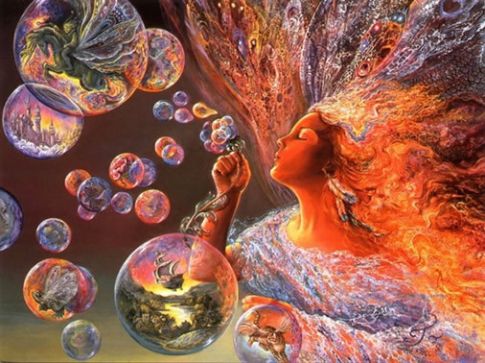Last year we briefly noted that a paper by FQXi grant winner Fred Adams was getting a lot of attention on science websites. The paper caused a stir because it called into question whether some of the fundamental constants in the universe really are as finely-tuned to permit stars--and hence life--to exist as people think. Adams pointed out that that the three physical constants that govern star formation can take on very different values, and yet still permit stars to appear--so our "finely-tuned" universe doesn't seem to be quite so special after all.
I've just come across a new paper in a similar vein, this time asking the same question about assumptions over the strength of the strong force, which binds quarks within the atomic nucleus. The commonly held view is that if the strong force was even just a wee bit stronger all hydrogen created in the big bang would have quickly been burned to helium, long before galaxies, let alone humans, could form. The paper's authors, James Macdonald and Dermott Mullan at the University of Delware refer to a famous book by FQXi's John Barrow and Frank Tipler, "The Anthropic Cosmological Principle," where this argument was set out (amongst other places). MacDonald and Mullan's new calculations suggest that actually the strong force could have taken on a range of values without there being a catastrophic effect on the amount of hydrogen left in the universe, and hence on life.

Credit: orangegirlishappy
Trying to explain why the universe seems to be perfectly tailored for human life to form preoccupies many FQX members, some of whom invoke the "multiverse" view of a cosmos containing many pocket universes. Their argument goes that we shouldn't be surprised to find ourselves in the one universe (out of many possible varieties of universe in a multiverse) in which physical constants take these fine-tuned values, because that's the only place that life could have evolved and hence where we could find ourselves. Many of them are now busy trying to work out just how unlikely these conditions are.
At its most polarising, the finely-tuned universe is held up as evidence of either the existence of God *or* a multiverse. There's a pretty good discussion of that broad argument in this Discover article, by Tim Folger: "Science's Alternative to an Intelligent Creator: The Multiverse." I personally think that the choice is more subtle than that. I went to the "God or Multiverse?" meeting held at Cambridge University in 2007 where physicists and theologians (and people who were trained in both physics and theology) gave talks from a number of perspectives ranging from how ideas of religion are compatible with a multiverse ("What is heaven if not another universe?" from one speaker) to how neither the multiverse nor a creator needs to be invoked to explain fine-tuning.
Whatever the answer, it will be interesting to see how this spate of papers about our not-so-special universe might change the debate.
(You can read more about Fred Adams FQXi-funded research in the article, "Predicting the End," by Govert Schilling.)